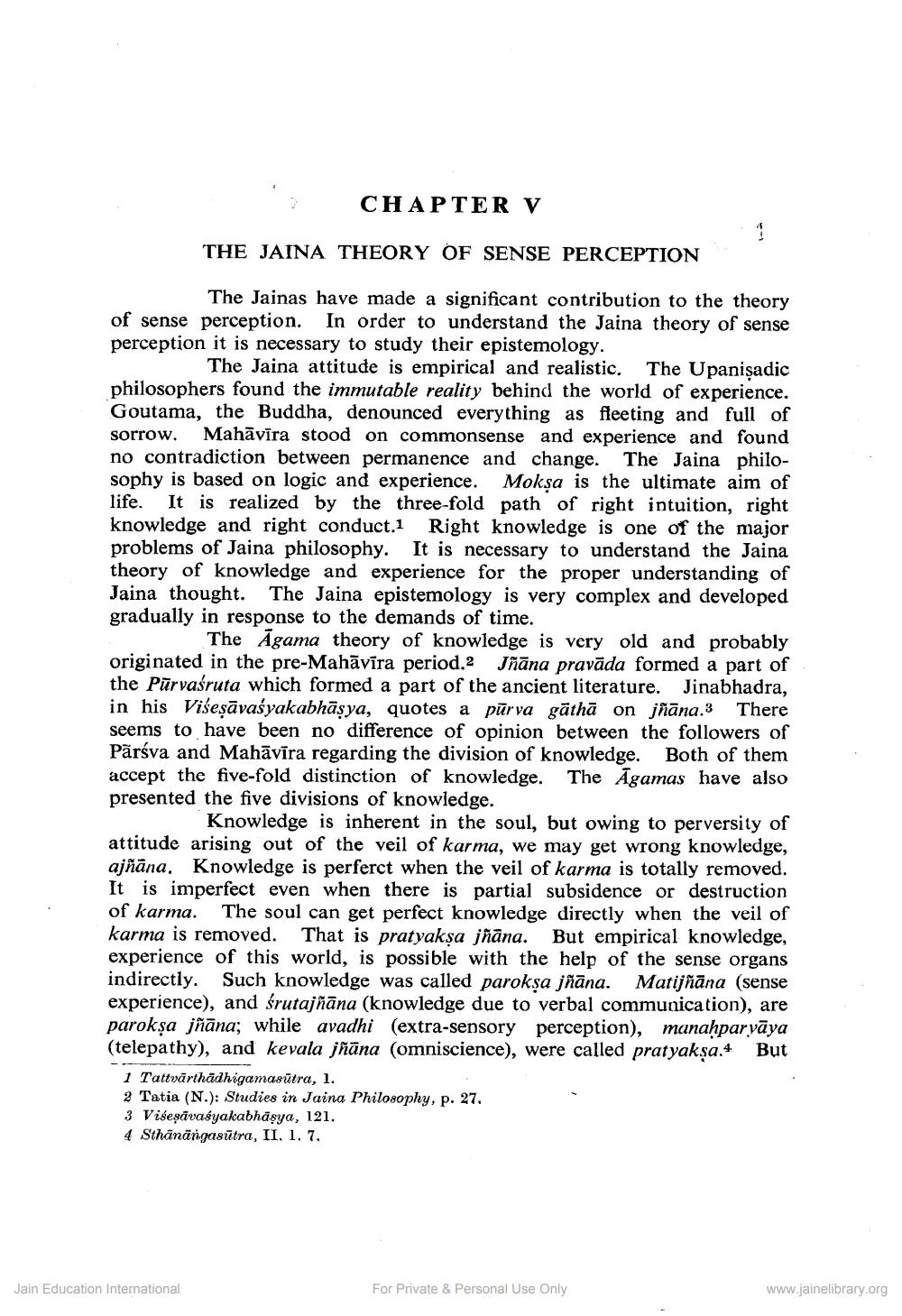________________
CHAPTER V
THE JAINA THEORY OF SENSE PERCEPTION
The Jainas have made a significant contribution to the theory of sense perception. In order to understand the Jaina theory of sense perception it is necessary to study their epistemology.
The Jaina attitude is empirical and realistic. The Upanisadic philosophers found the immutable reality behind the world of experience. Goutama, the Buddha, denounced everything as fleeting and full of sorrow. Mahāvīra stood on commonsense and experience and found no contradiction between permanence and change. The Jaina philosophy is based on logic and experience. Mokṣa is the ultimate aim of life. It is realized by the three-fold path of right intuition, right knowledge and right conduct.1 Right knowledge is one of the major problems of Jaina philosophy. It is necessary to understand the Jaina theory of knowledge and experience for the proper understanding of Jaina thought. The Jaina epistemology is very complex and developed gradually in response to the demands of time.
The Agama theory of knowledge is very old and probably originated in the pre-Mahāvīra period.2 Jñāna pravāda formed a part of the Purvaśruta which formed a part of the ancient literature. Jinabhadra, in his Viseṣāvaśyakabhāṣya, quotes a pūrva gāthā on jñāna.3 There seems to have been no difference of opinion between the followers of Pärśva and Mahāvīra regarding the division of knowledge. Both of them accept the five-fold distinction of knowledge. The Agamas have also presented the five divisions of knowledge.
Knowledge is inherent in the soul, but owing to perversity of attitude arising out of the veil of karma, we may get wrong knowledge, ajñāna. Knowledge is perferct when the veil of karma is totally removed. It is imperfect even when there is partial subsidence or destruction of karma. The soul can get perfect knowledge directly when the veil of karma is removed. That is pratyakṣa jñāna. But empirical knowledge, experience of this world, is possible with the help of the sense organs indirectly. Such knowledge was called parokṣa jñāna. Matijñāna (sense experience), and śrutajñāna (knowledge due to verbal communication), are parokṣa jñāna, while avadhi (extra-sensory perception), manaḥparyāya (telepathy), and kevala jñāna (omniscience), were called pratyakṣa. But
1 Tattvärthadhigamasutra, 1.
2 Tatia (N.): Studies in Jaina Philosophy, p. 27.
3 Viseṣāvasyakabhāṣya, 121.
4 Sthanängasūtra, II. 1. 7.
Jain Education International
For Private & Personal Use Only
www.jainelibrary.org




